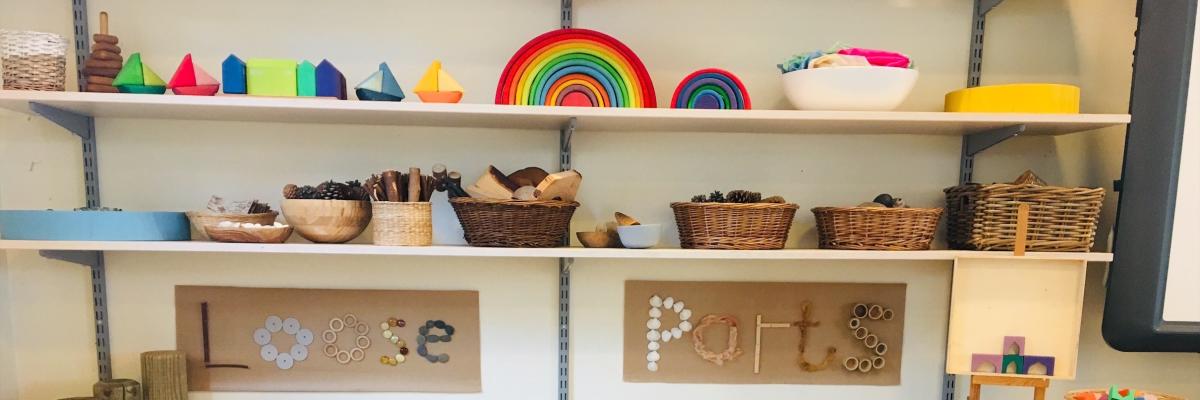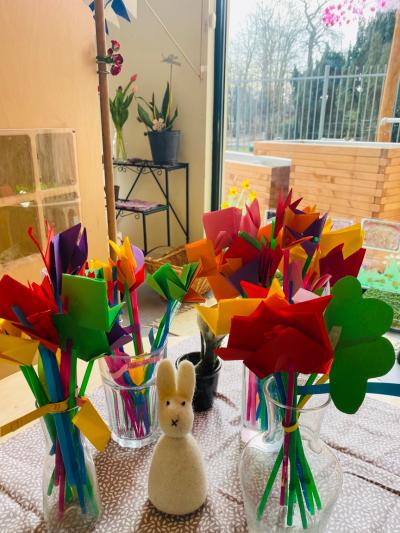
Reception Class
At Rygaards School, we provide a caring, stimulating and creative learning environment where children can find the joy in learning and experience the richness of childhood.
In Reception Class, children follow the Early Years Foundation Stage (EYFS) curriculum. See under links for more information about EYFS. This sets the standards for the learning, development, and care of each child. In the EYFS, play is a very important part of your child’s development, and so, most learning will be introduced through a mixture of carefully planned play and adult-led focused activities. There will also be opportunities for children to choose activities that appeal to them, following their own particular interests.
The EYFS is a framework for children’s development from birth to the end of the Reception year of Primary School. There are four themes of the EYFS:
- A unique child - every child is a competent learner from birth and can be resilient, capable, confident and self-assured.
- Positive Relationships - children learn to be strong and independent from a base of loving and secure relationships with parents and carers.
- Enabling environments - the environment plays a key role in supporting and extending children’s development and learning.
- Learning and Developing - children develop and learn in different ways and at different rates, and all areas of learning and development are equally important.

These themes are used to underpin the learning and development that each child will take part in during their time in Reception Class. Children learn in a variety of ways: watching others, talking, asking questions, listening, exploring and investigating. Planned, purposeful play is the foundation of development and learning for young children and all the children in Reception Class will have the opportunity to take part in many indoor and outdoor play experiences that will help them to learn and have fun!
The Early Years Foundation Stage Curriculum covers areas of learning which, in reality, are often integrated together throughout the day. These areas are as follows;
- Personal, social and emotional development
-
This area of learning helps children to feel good about themselves and others so they are able to develop positive relationships. It supports them to become independent, excited and motivated learners.
For example, we encourage the children to use the toilet independently, wash their hands, put on and fasten their coats. We also initiate playing games which encourage sharing and turn taking, helping the children to build their social skills.
- Communication and Language
-
Listening: Children are encouraged to listen attentively in a range of situations. They listen to stories, accurately anticipating key events and are encouraged to respond to what they hear with relevant comments, questions or actions. They learn to give their attention to what others say and respond appropriately, while engaged in another activity.
Understanding: Children follow instructions involving several ideas or actions. They answer how and why questions about their experiences and in response to stories or events.
Speaking: Children learn to express themselves effectively, showing an awareness of listeners’ needs. They learn to use past, present and future forms accurately when talking about events that have happened or are to happen in the future. They develop their own narratives and explanations by connecting ideas or events.
- Physical Development
-
Making progress in physical development gives children confidence and enables them to feel the benefits of being healthy and active. Children participate in structured PE and dance sessions, improving their skills of co-ordination, control and movement. There are many opportunities for the development of fine motor skills; for example, through using scissors, glue, paintbrushes and pencils. Children learn through running, jumping, climbing and playing outdoors, and also by taking part in activities such as building, drawing, threading beads, or filling and emptying water containers in order to develop manipulative skills.
- Literacy
-
Children in Reception Class are supported in their early reading and writing, spending time together enjoying stories, books and rhymes and linking sounds and letters (phonics).
Children are encouraged to join in and talk about books, sing songs, join in games and rhymes, and to talk about things they have done.
- Mathematics
-
This area of learning includes developing mathematical understanding through stories, songs, games, everyday activities and imaginative play so that children enjoy experimenting and become confident and curious about numbers, shapes, patterns and measures. This can be through talking about the shapes around in the environment, comparing things which are heavy and light or long and short, pointing out numbers in the environment, singing counting songs and rhymes, counting anything and everything!
- Understanding the world
-
In this area of learning, children develop knowledge, skills and understanding that help them to make sense of the world. This is the foundation for later work in History, Geography, Science, Design and Technology and Information and Communication Technology.
- Expressive Arts and Design
-
This area of learning includes Art, Music, Dance, Drama and imaginative play opportunities for children to try new experiences and express themselves in a variety of ways. Creativity is an important part of successful learning; it enables children to make connections between experiences, solve problems and be inventive. In their imaginative play, children are encouraged to talk about their play, and are encouraged to be flexible in their thinking and use of materials.
In Reception Class, children are praised for their efforts and ideas as well as the end product. Observational assessment is used to understand each child’s learning; watching, listening and interacting as each child engages in everyday activities, events and experiences, and demonstrates their specific knowledge, skills and understanding. Observations build up an accurate picture of each child’s development and learning.

Children can be developing knowledge, understanding and new skills across several areas of learning at once. For example, in making and playing with playdough, they may go to the shop to buy ingredients (understanding the world), look at a recipe and talk about the instructions (communication, language and literacy), count out spoonfuls of flour (problem solving, reasoning and numeracy), mix and roll out dough (physical), and then use their imagination to make food, animals and cakes (creative).
In this way, children in Reception Class are learning continually through every activity and every area of play. They learn to appreciate and enjoy their successes and to persevere through the areas that need more work. They experience learning from their mistakes and moving forward, growing in confidence and independence, day by day. Reception Class is a calm, happy place to be!